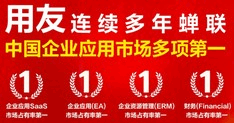🗣 SL提问: Assetmanagement
✍️ Ai批改: Asset management refers to the process of developing, maintaining, and investing in assets to maximize their value and returns、Here's an overview:
What is Asset Management?
Asset management involves the strategic management of various types of assets, such as:
1、Financial assets (e.g., stocks, bonds, currencies)
2、Physical assets (e.g., real estate, infrastructure, commodities)
3、Digital assets (e.g., data, software, intellectual property)
4、Human assets (e.g., skills, knowledge, talent)
The primary goal of asset management is to optimize the performance, value, and returns of these assets, while minimizing risks and costs.
Types of Asset Management
There are several types of asset management, including:
1、Investment Management: managing investments on behalf of individuals, institutions, or organizations to achieve specific financial goals.
2、Wealth Management: providing comprehensive financial services to high net worth individuals and families.
3、Asset Allocation: allocating assets across different classes to optimize portfolio performance and risk management.
4、Portfolio Management: managing a collection of assets to achieve specific investment objectives.
5、Digital Asset Management: managing digital assets, such as data, software, and intellectual property.
Key Concepts in Asset Management
1、Diversification: spreading investments across different asset classes to minimize risk.
2、Risk Management: identifying and mitigating potential risks associated with assets.
3、Return on Investment (ROI): measuring the performance of assets based on returns.
4、Asset Valuation: determining the economic value of assets.
5、Active vs、Passive Management: actively managing assets to beat market benchmarks or passively tracking market indices.
Benefits of Asset Management
1、Increased Efficiency: optimizing asset utilization and reducing waste.
2、Improved Returns: maximizing returns on investments.
3、Risk Reduction: mitigating potential risks and losses.
4、Enhanced Decision-Making: providing data-driven insights for informed investment decisions.
5、Better Governance: ensuring compliance with regulations and standards.
Asset Management Tools and Techniques
1、Asset Management Software: utilizing specialized software to track, monitor, and analyze assets.
2、Data Analytics: applying data analysis and statistical techniques to inform investment decisions.
3、Machine Learning: using artificial intelligence and machine learning algorithms to predict asset performance.
4、Portfolio Optimization: using mathematical models to optimize portfolio composition.
Challenges in Asset Management
1、Market Volatility: managing assets in uncertain and dynamic markets.
2、Regulatory Compliance: adhering to changing regulatory requirements.
3、Cybersecurity: protecting digital assets from cyber threats.
4、Talent Management: attracting and retaining skilled professionals.
5、Sustainability: incorporating environmental, social, and governance (ESG) considerations.
Best Practices in Asset Management
1、Develop a clear investment strategy.
2、Conduct thorough risk assessments.
3、Diversify portfolios.
4、Monitor and adjust asset allocations.
5、Maintain transparent reporting and communication.
By following these best practices and leveraging the right tools and techniques, asset managers can help individuals, organizations, and institutions achieve their financial goals and maximize the value of their assets.
0
IP地址: 201.232.47.51
搜索次数: 136
提问时间: 2025-04-11 11:42:36
❓️ 热门提问:
89年的蛇适合带黄金吗
外汇卖出价什么意思
金币老传奇
外汇恒生指数代码是多少
域名筛选搜索工具
外汇市场典型特征
ai文章算原创吗
通化东宝
马吊坠黄金
ai绘画关键词反推
豌豆Ai站群搜索引擎系统
🤝 关于我们:
三乐Ai
作文批改
英语分析
在线翻译
拍照识图
Ai提问
英语培训
本站流量
联系我们

📢 温馨提示:本站所有问答由Ai自动创作,内容仅供参考,若有误差请用“联系”里面信息通知我们人工修改或删除。
👉 技术支持:本站由豌豆Ai提供技术支持,使用的最新版:《豌豆Ai站群搜索引擎系统 V.25.05.20》搭建本站。

















